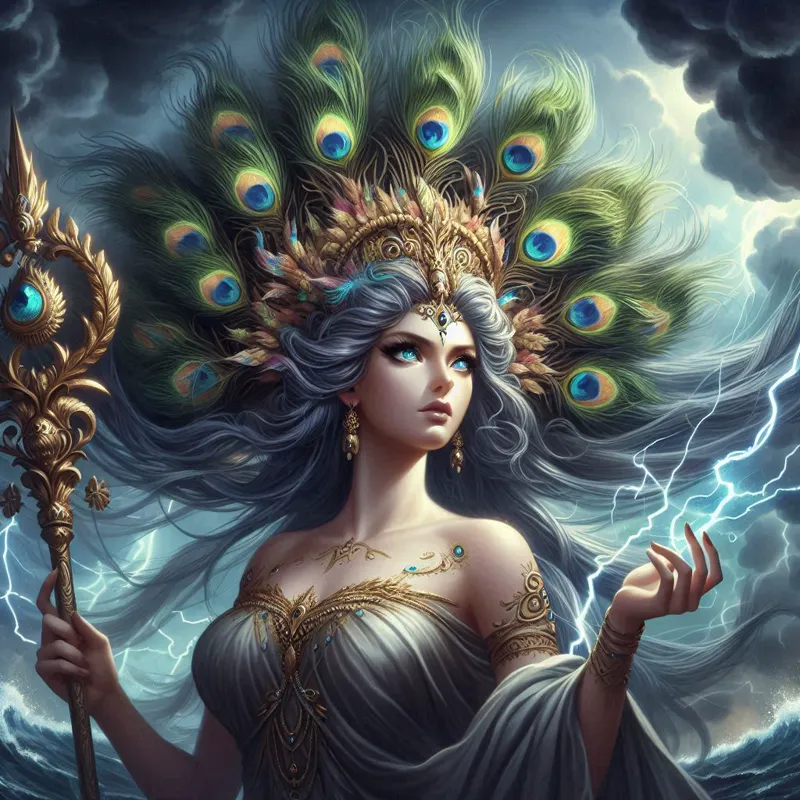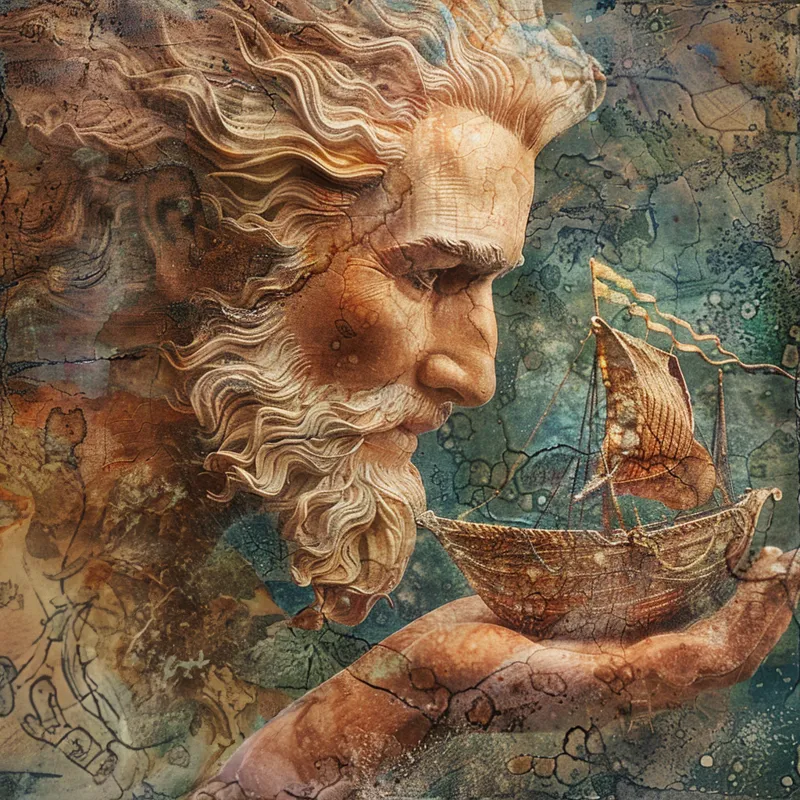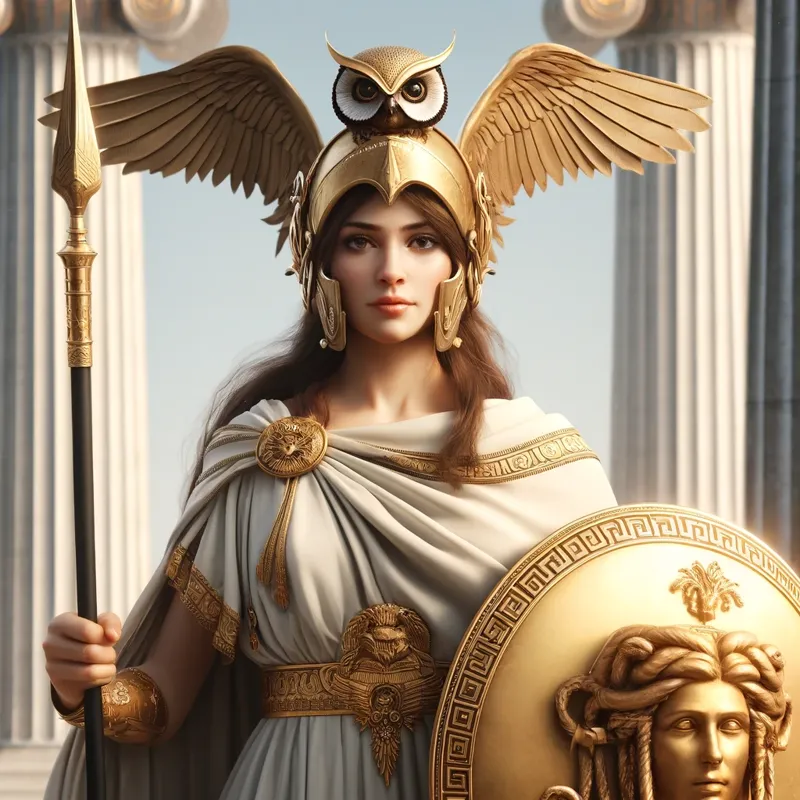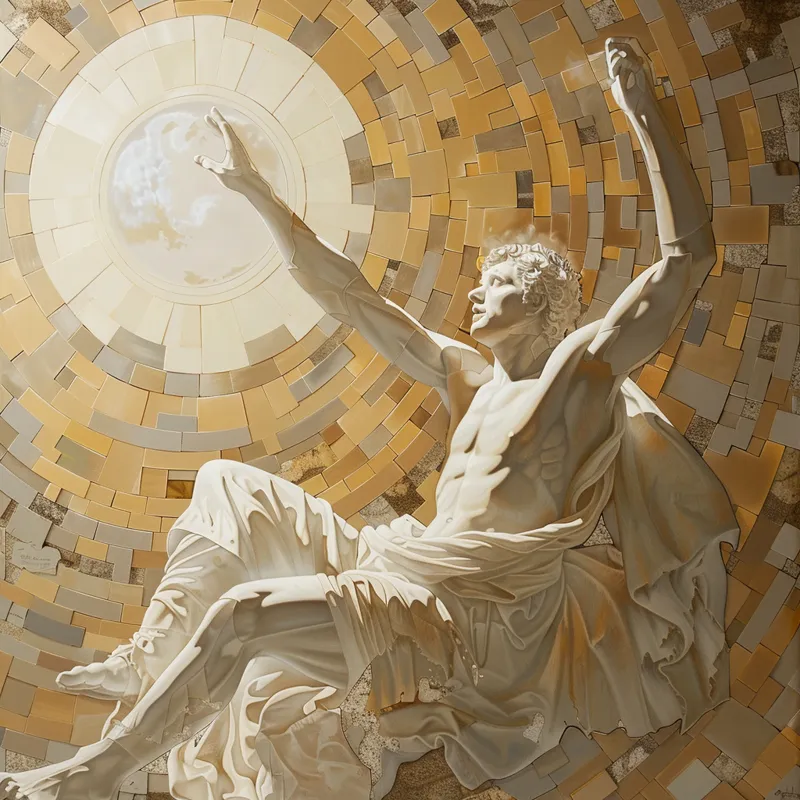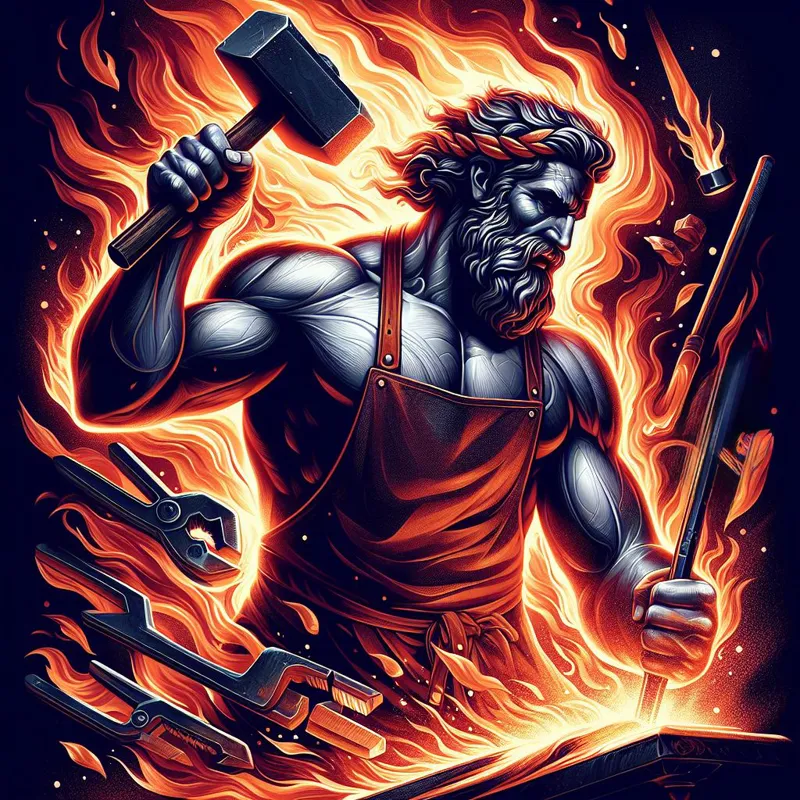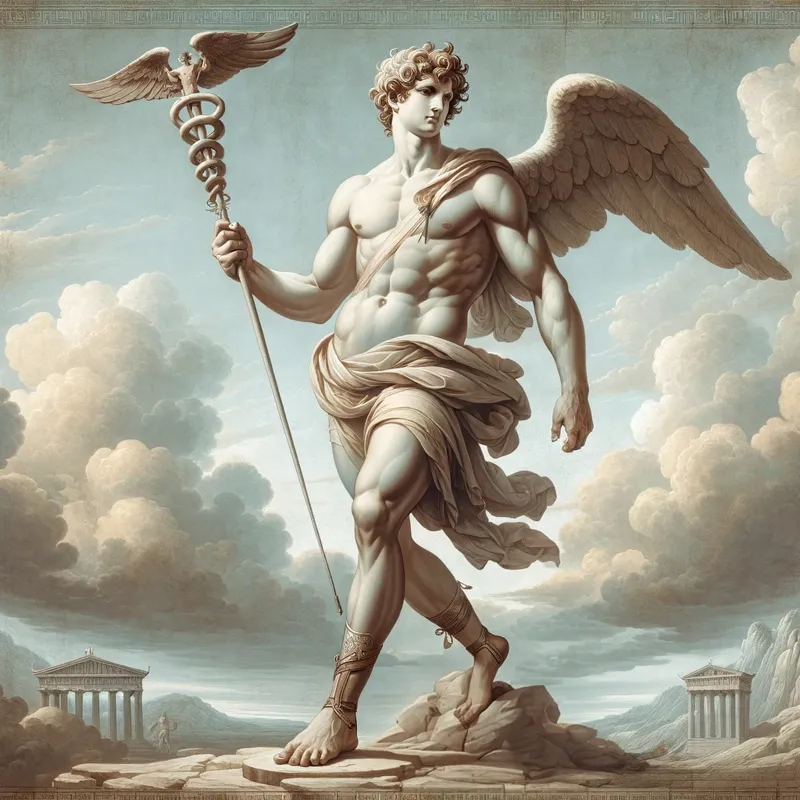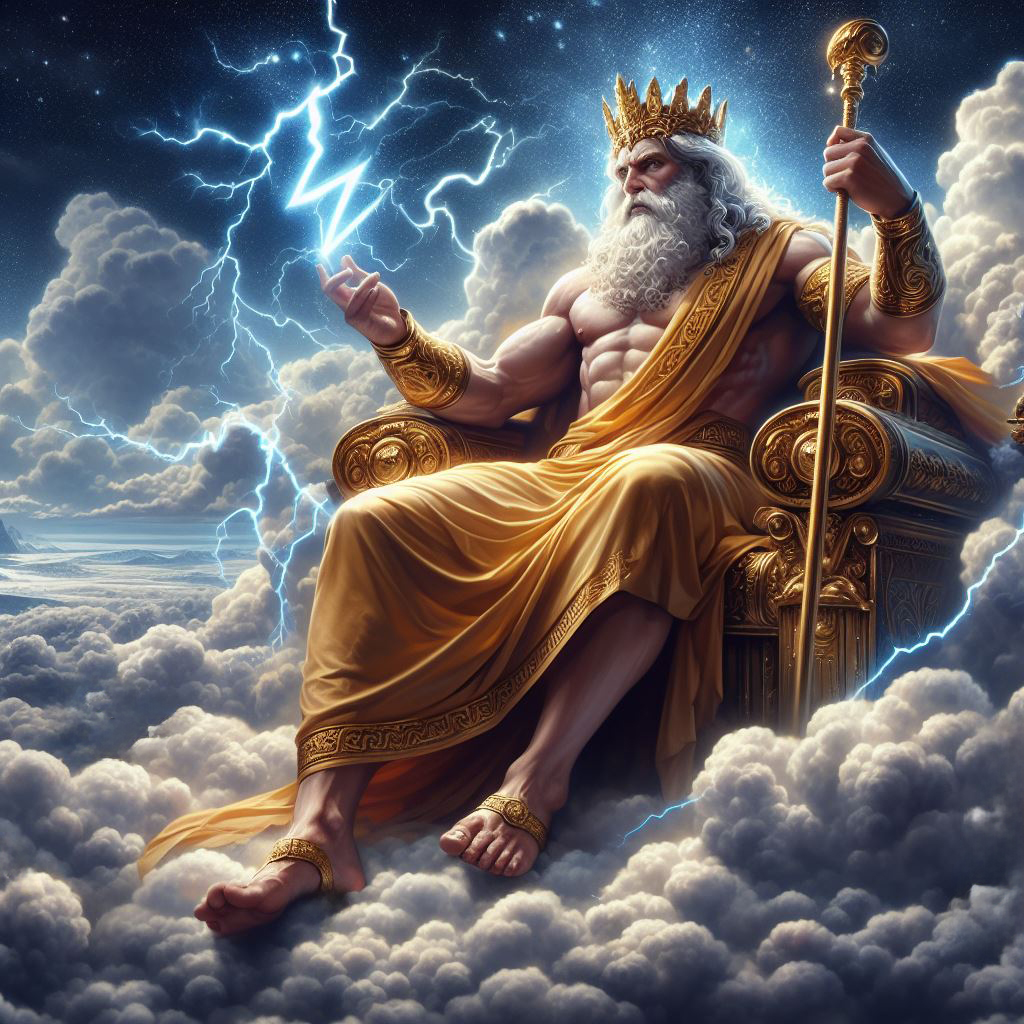
Lessons of Our Fathers
Zeus stands as one of the most influential figures in Greek mythology, revered as the king of the gods and ruler of Mount Olympus. His image and stories have permeated various facets of culture and continue to be a subject of fascination and study. Zeus is central to numerous myths, embodying themes of power, justice, and his often tumultuous relationships with other gods and mortals. Understanding Zeus offers insights into ancient Greek religion, culture, and perspectives on divine governance.
Birth and Rise to Power
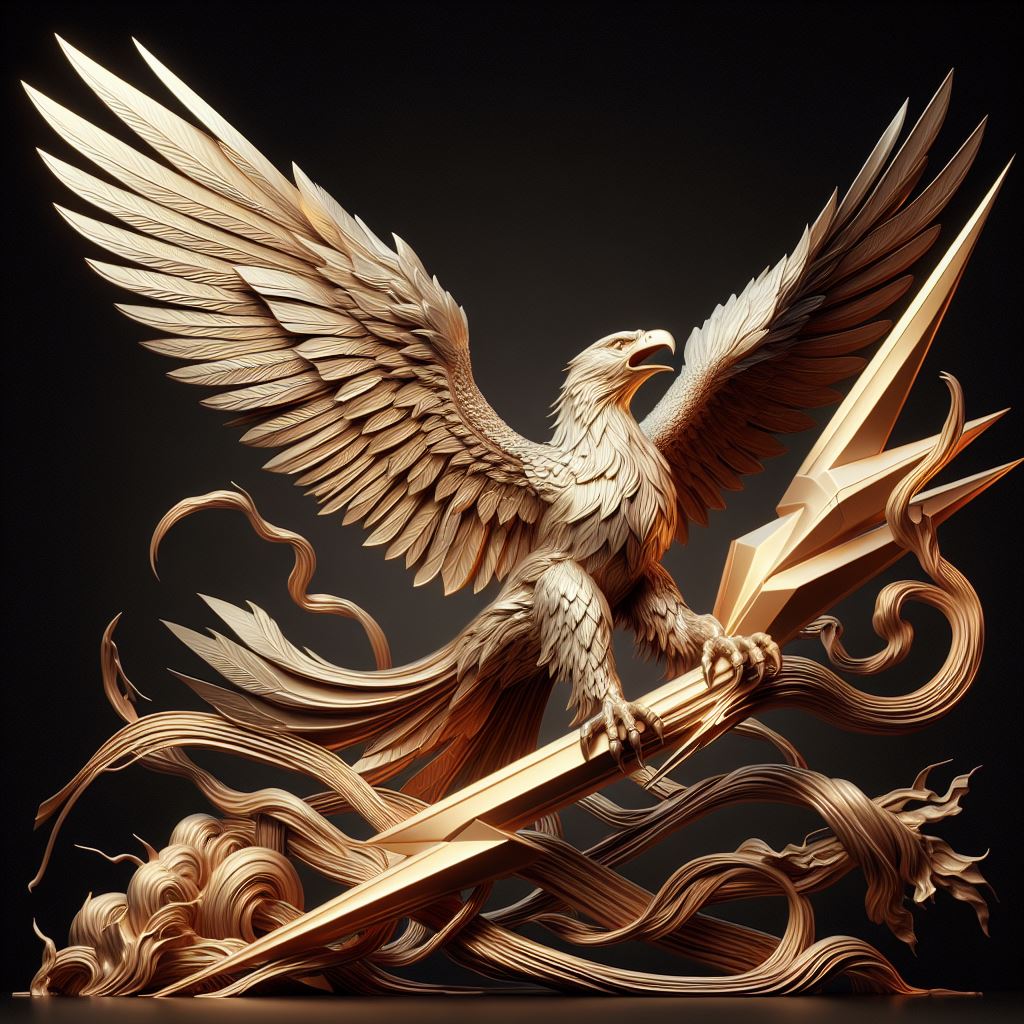
Catching lightning
Zeus was the youngest son of the Titans Cronus and Rhea. Cronus, fearing that he would be overthrown by his children just as he had overthrown his own father, swallowed each of his offspring at birth. However, Rhea, determined to save Zeus, hid him in a cave on Crete and gave Cronus a stone wrapped in swaddling clothes to swallow instead. Zeus was raised in secret, guarded by the nymphs and warriors of the mountain, who drowned out his cries with their shields clashing.

Searching for the light

Adventure
When Zeus reached adulthood, he sought to challenge Cronus and rescue his siblings. With the help of Metis, a daughter of Oceanus, he administered an emetic to Cronus, which caused the Titan to vomit up Zeus's siblings, fully grown and ready for war. This act led to the Titanomachy, a ten-year-long war between the Titans, led by Cronus, and the younger gods, led by Zeus. The war ended with the victory of Zeus and his siblings, thanks to their alliances with the Cyclopes and Hecatoncheires, who provided Zeus with his thunderbolts.

On to the next peak
Lord of the Sky and Thunder

What is the meaning of life?
As the god of the sky and thunder, Zeus controlled the natural elements, wielding thunderbolts with formidable power. His control over weather and natural phenomena symbolized his authority over the natural order and the universe. The thunderbolt became his primary weapon and symbol, representing both destruction and the swift imposition of divine justice. His decisions on the distribution of weather could be seen as reflections of his mood or his divine will, often used to reward the righteous or punish the wicked.
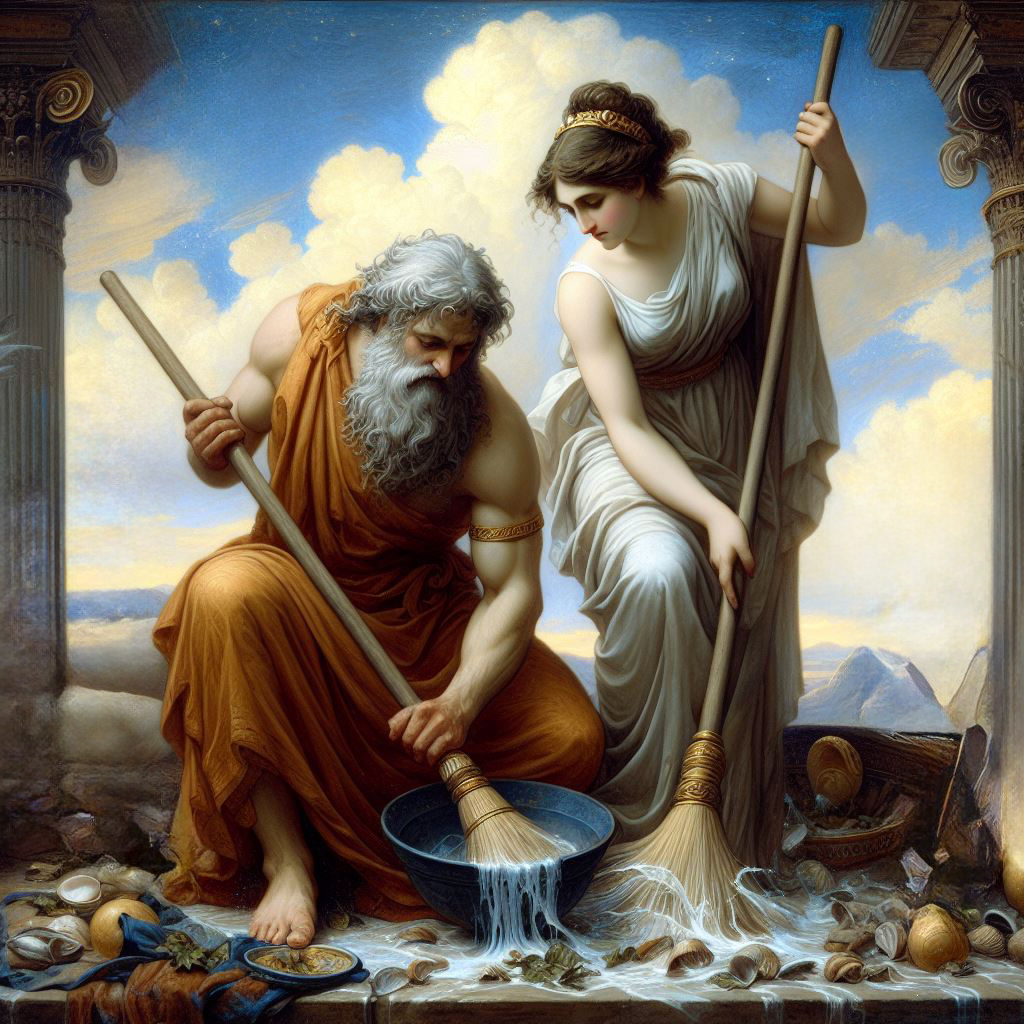
A well kept home is the basis for everything
Zeus's role extended beyond mere weather patterns; it involved the oversight of law, order, and justice among gods and humans. He presided over the assembly of gods on Mount Olympus and was often called upon to mediate disputes, both divine and mortal. His decisions were final, reinforcing his role as the chief arbiter and upholder of the cosmic order. His judgments were expected to be adhered to by all, reflecting his complex role as a father figure, king, and ultimate authority.
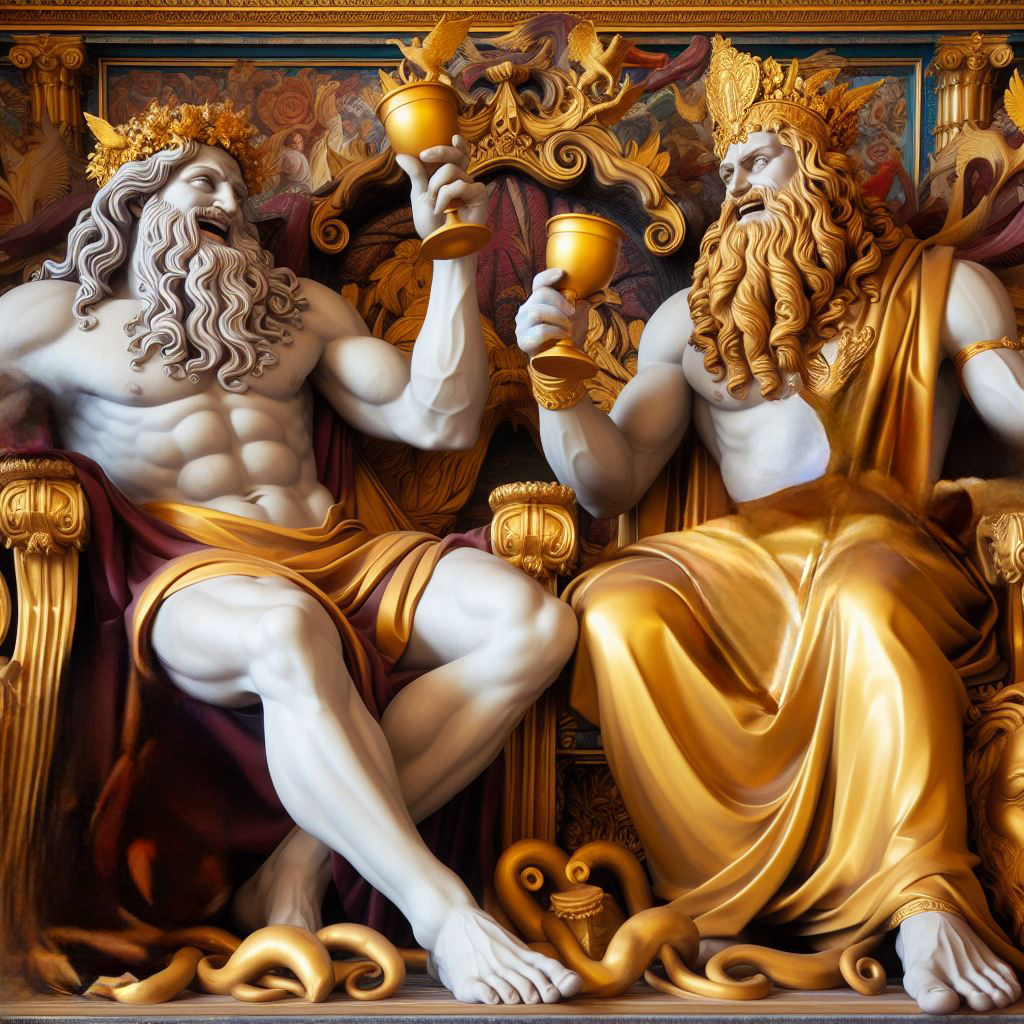
It's okay to relax every once in a while
Zeus's Many Loves

Time is always against us, being fast is important
Zeus is perhaps as well known for his romantic escapades as he is for his sovereignty. His numerous affairs with goddesses and mortal women are legendary, often resulting in the birth of important gods and heroes, such as Athena, Apollo, Artemis, and Hercules. Despite his marriage to Hera, the goddess of marriage, Zeus's amorous adventures were varied and frequent, leading to many conflicts and repercussions within the divine and mortal realms.
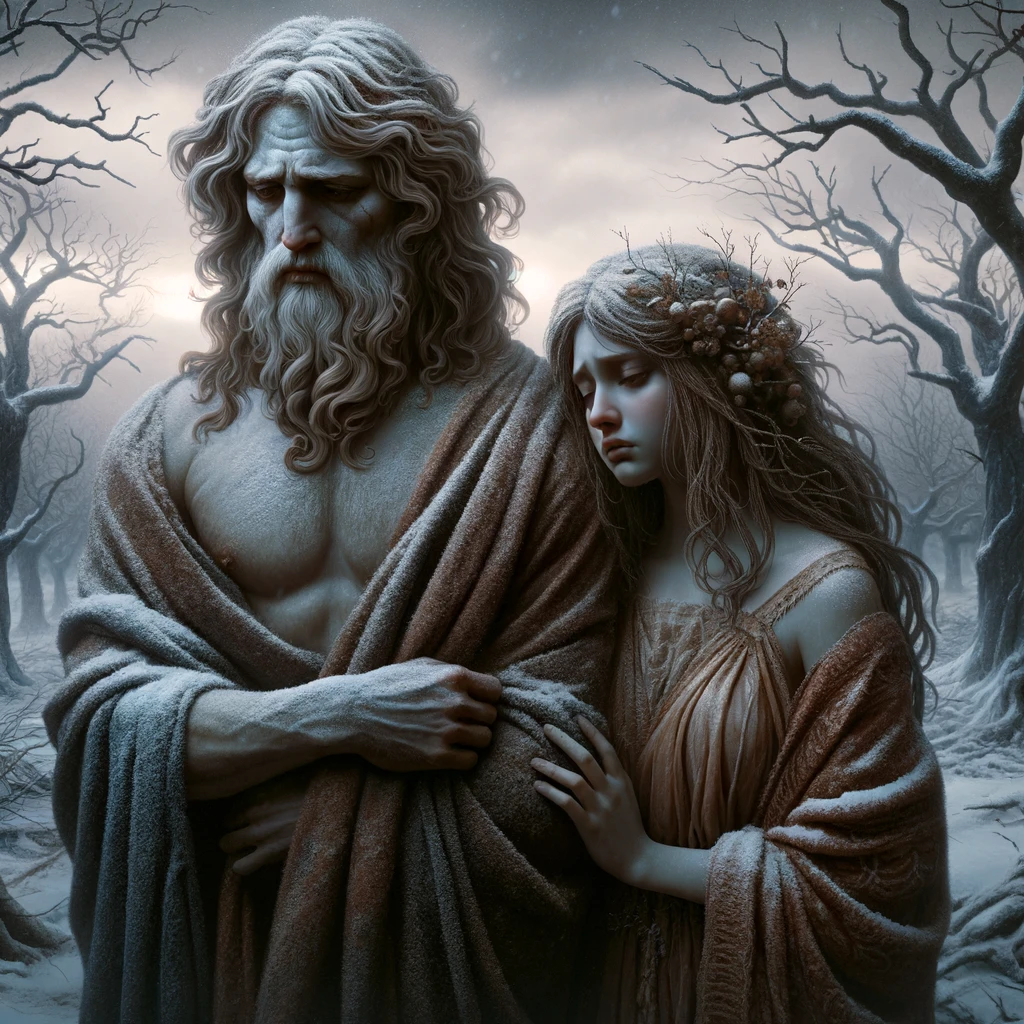
Sorrow is part of life
Each of Zeus's liaisons had mythological significance, often reflecting political alliances or the integration of local deities into the pan-Hellenic mythos. For example, his union with Leto, the mother of Apollo and Artemis, symbolized the incorporation of their worship into the Greek religious framework. His affairs were not just tales of romance but also narratives that wove the complex tapestry of divine influence over the various facets of life and culture across the Greek world.
Zeus and His Children
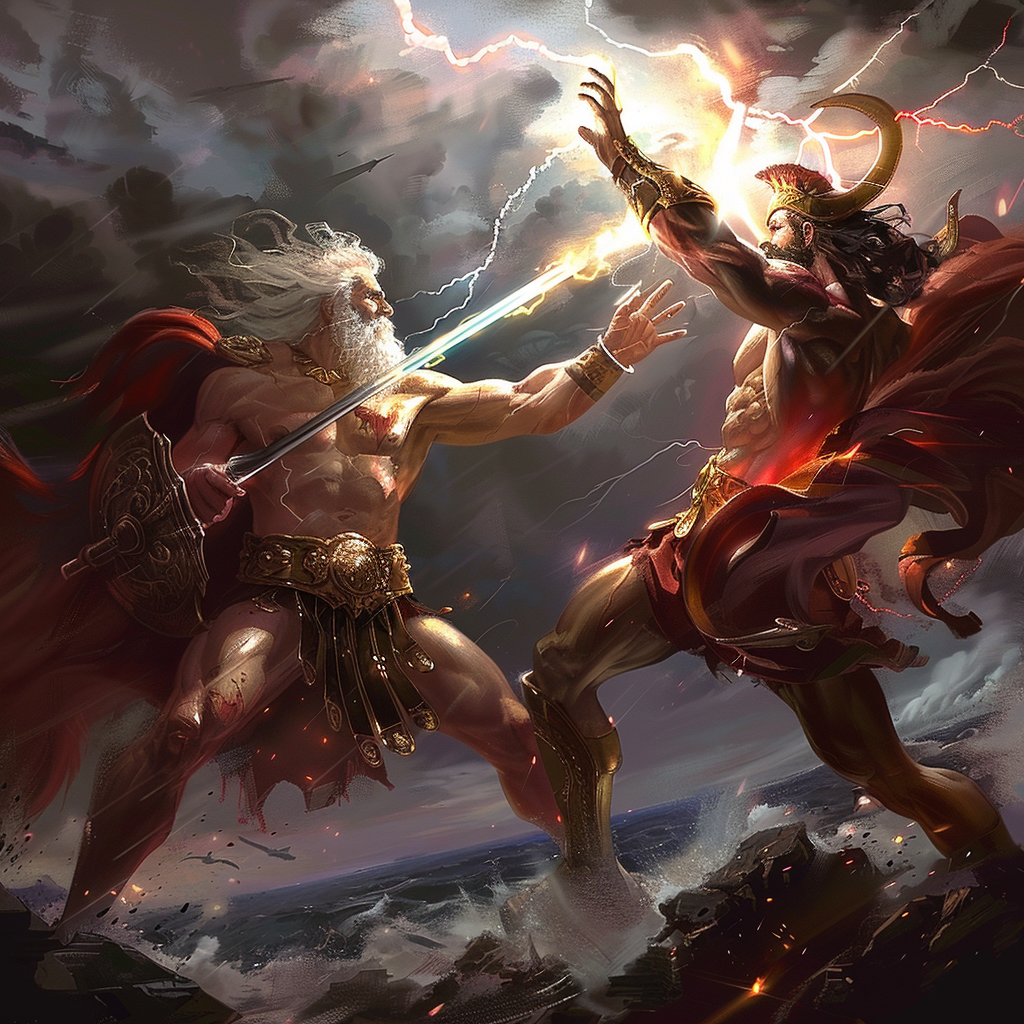
Pray for peace but be prepared for war
Zeus's progeny are as varied as his lovers, including gods, demigods, and heroic mortals who played pivotal roles in Greek mythology and heroics. His divine children, such as Athena, who sprang fully grown and armored from his forehead, and Dionysus, who was twice born from Zeus, highlight his ability to engender deities with specialized and potent domains. His mortal offspring, such as Hercules and Perseus, were central figures in myths that combined the elements of tragedy and triumph, often reflecting the human aspects of Zeus's personality.

Beauty and elegance must go hand-in-hand
These children often took on roles that extended their father's dominion and influence across the mortal and divine realms. Hercules' labors, for example, not only demonstrated the might and endurance bestowed by his divine heritage but also served to maintain cosmic balance and order, which were Zeus's paramount concerns. The stories of his children encapsulate the multi-faceted nature of Zeus's own realm of influence, from warfare and wisdom to wine and revelry.
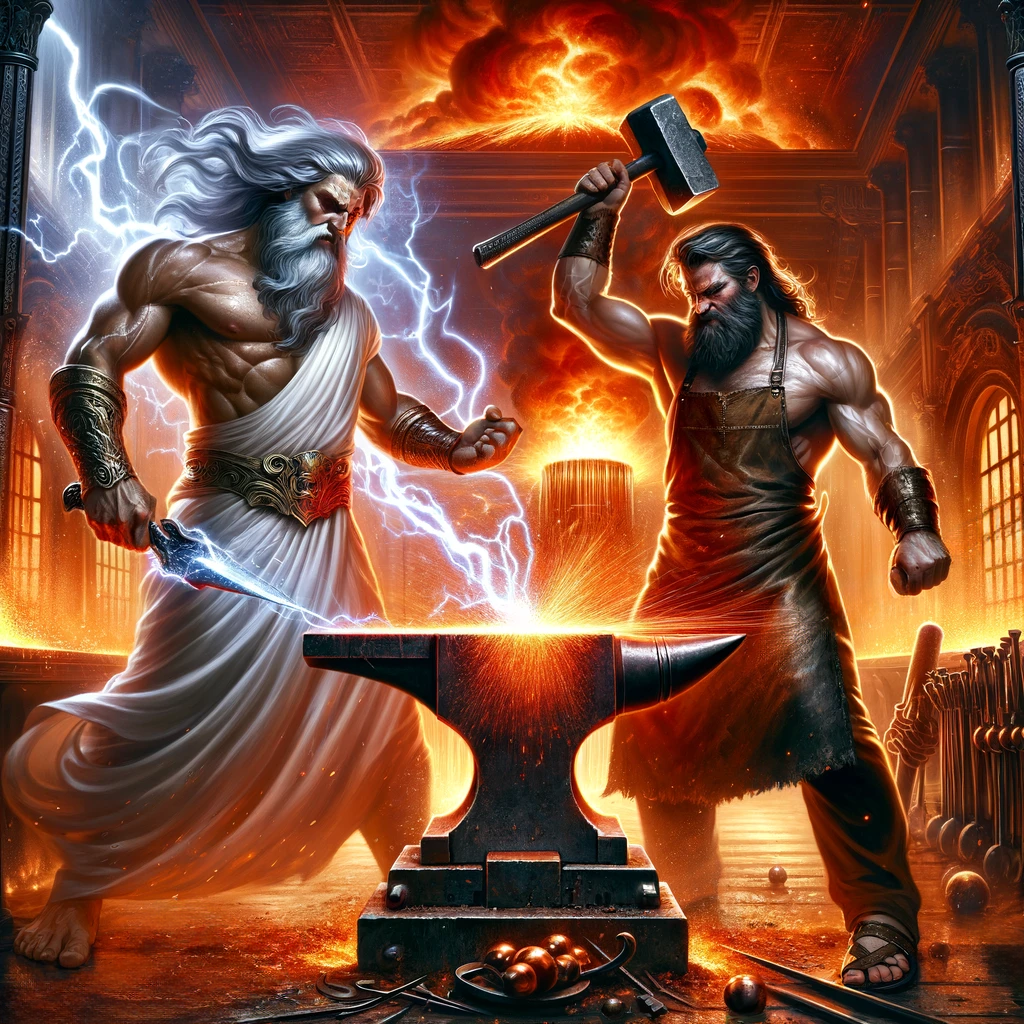
Man's greatest strength is ingenuity
Protector and Punisher
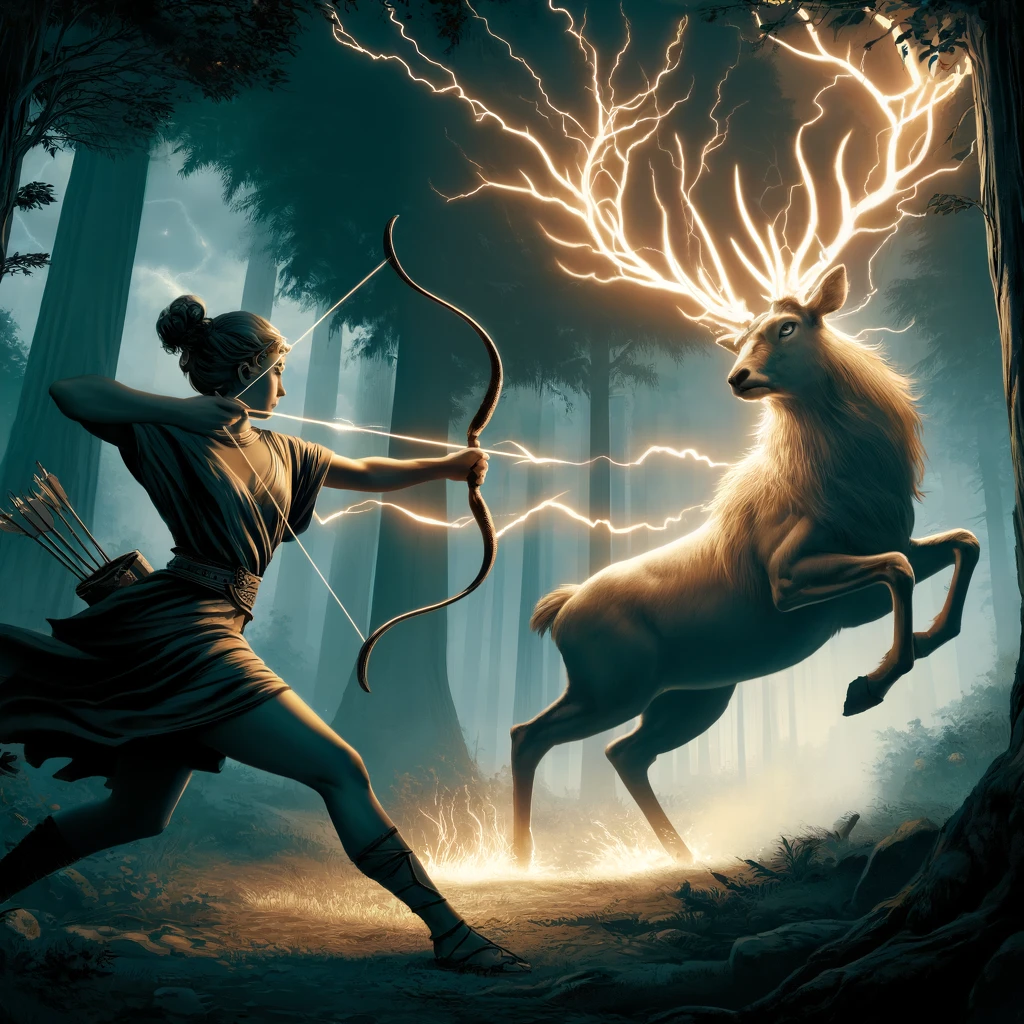
To spot liars, one must be true to oneself
Zeus was venerated not only as a protector of the gods and humans but also as a stern punisher of wrongs. His dual role is exemplified in the myth of Prometheus, who was punished by Zeus for giving fire to humanity. This narrative underscores Zeus's commitment to maintaining divine order and his willingness to impose severe penalties on those who defied him, whether god or mortal. His judgments were often harsh but were seen as necessary to uphold the cosmic and social order.
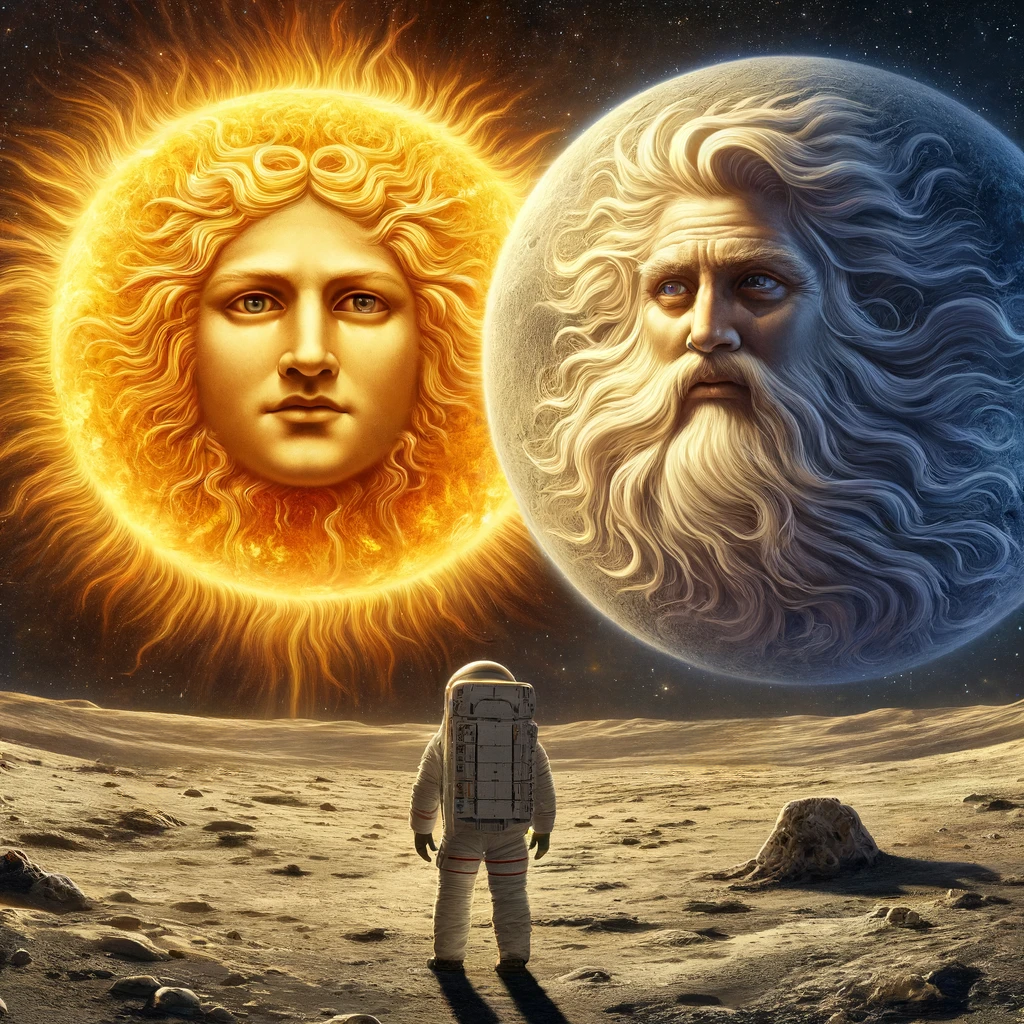
Wherever we go, we carry our fathers with us
However, Zeus was also capable of mercy and generosity. His protection was invoked in various aspects of daily Greek life, including guest-friendship (xenia), civic order, and familial relationships. He was seen as a paternal figure whose approval and support were sought in times of need. This balance of mercy and judgment was crucial to Zeus's role in Greek mythology, embodying the complexities of justice and leadership.
Zeus as a Symbol of Unity and Conflict

The path to our goal is very rarely a straight line
Zeus's role in Greek mythology also encapsulates the themes of unity and conflict among the gods and mortals. As the supreme deity, he was often at the center of divine and earthly disputes, yet he also played a crucial role in resolving these conflicts and maintaining balance. His authority and power were instrumental in unifying the Olympian gods, particularly after the Titanomachy, which ended with the establishment of a new order under his leadership. This unity, however, was frequently tested by the intrigues and rivalries among the gods, reflecting the complexities of Greek politics and social relations.

The world is cruel, one must be tough enough to face it
On the mortal plane, Zeus was revered as a kingmaker and a unifying figure who could bestow kingship or take it away. His influence was invoked in oaths and contracts, lending a divine seal to human agreements and ensuring communal harmony. Yet, Zeus could also be a source of conflict, as his decisions or favoritism could lead to jealousy and strife among the gods, which often spilled over into the lives of mortals. These dynamics highlight Zeus's dual role as a bringer of both peace and discord, mirroring the dualities found within human societies.

The hardest thing in the world is to create a bond that never breaks
Cultural Impact and Legacy

But most important of all. To understand the meaning of life...
The influence of Zeus in ancient Greek culture cannot be overstated. He was central to numerous religious practices, festivals, and rituals, particularly the Olympic Games, which were held in his honor. His oracles, most notably the Oracle at Dodona, were important religious sites where individuals and states sought divine guidance. These cultural practices demonstrate how deeply Zeus was woven into the fabric of Greek life and how his divine narrative shaped ancient Greek identity and societal norms.

One must experience it
In art and literature, Zeus has been a prominent figure, depicted often as a majestic, imposing man with a beard, often wielding a thunderbolt. His representations in sculpture, pottery, and poetry reflect his paramount status among the gods and his role as a symbol of power and authority. The stories of Zeus have been passed down through millennia, influencing countless generations and leaving a legacy that extends far beyond the confines of ancient Greece.
Zeus, as the king of the gods and the central figure in Greek mythology, represents a complex amalgamation of authority, paternalism, and moral ambivalence. His myths and stories have provided deep insights into how the ancient Greeks viewed the cosmos, divinity, and humanity's place within it. As a cultural and religious figure, Zeus has shaped not only mythology but also the understanding of leadership and justice in Western thought. The tales of Zeus, with their rich symbolism and dramatic narratives, continue to be a testament to the ancient Greeks' quest for understanding and explaining the world around them.


